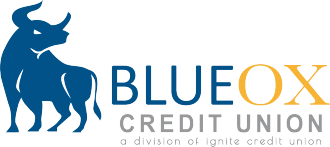tips for boosting your credit score

Discover practical strategies to enhance your credit score and improve your financial standing.
understand the factors that affect your credit score
Understanding what affects your credit score is crucial for improving it. Your credit score is determined by several factors, including your payment history, credit utilization, length of credit history, types of credit used, and new credit inquiries. By familiarizing yourself with these factors, you can make informed decisions to boost your credit score.
- Payment history accounts for about 35% of your overall score and is one of the most significant components in determining your credit score.
- Credit utilization represents the amount of credit you currently use compared to your total available credit. The more credit you're using, the greater the impact it will have on your credit score.
- The length of your credit history also plays a role in your credit score. The longer your credit history, the more information lenders have to assess your creditworthiness. Because of this, it's typically more beneficial to leave unused cards open rather than closing them out.
- Canceling a card may lower your credit score due to a decrease in your credit utilization and credit history.
- The types of credit you use can also impact your credit score. Having a mix of credit, such as credit cards, loans, and a mortgage, can show lenders that you can handle different types of credit responsibly.
- New credit inquiries can temporarily lower your credit score. Avoid applying for multiple new credit accounts within a short time, as lenders can see it as a red flag.
By understanding these factors, you can take proactive steps to improve your credit score and achieve financial success.
pay your bills on time
It's crucial to prioritize timely payments. Making late payments will negatively affect your score, and late fees can make it challenging to catch up.
Set up reminders or automatic payments to ensure you never miss a due date. Consider using online banking or mobile apps to conveniently manage your bill payments. If you're struggling to make payments, reach out to your creditors or utility providers immediately to discuss possible payment arrangements or options before your credit score is affected.
reduce your credit card utilization
Utilizing all of your available credit does not equal good credit utilization. Creditors like to see that you’re handling your credit responsibly! To reduce your credit card utilization, start by paying down your credit card balances. Always aim to keep your credit card balances below 30% of your credit limit. Consider making multiple monthly payments to keep your balances low or paying more than the minimum payment.
Additionally, you can request a credit limit increase on your credit cards, which can help lower your credit card utilization ratio. However, be cautious when requesting credit limit increases, as they may result in hard inquiries on your credit report.
pro tip: If you have high-interest credit card debt that you’re finding difficult to manage, consider joining a Debt Management Program. Most financial counseling services offer this unique debt management option to help people lower their interest rates and pay off their debts sooner.
monitor your credit report regularly
Monitoring your credit report regularly is essential for maintaining a healthy credit score. By reviewing your credit report, you can identify any errors or fraudulent activity that may be negatively impacting your credit.
If you find any errors, dispute them with the credit bureaus to have them corrected. Additionally, consider signing up for credit monitoring services or using credit monitoring apps to receive regular updates on any changes to your credit report.
By monitoring your credit report regularly, you can ensure its accuracy and take the necessary steps to improve your credit score.
pro tip: Every year, you're entitled to one free credit report from each of the three major credit bureaus—Equifax, Experian, and TransUnion. Take advantage of this and request your credit reports. Review them carefully, checking for any inaccuracies, such as incorrect personal information, accounts you don't recognize, or late payments that you believe were made on time.
what’s next?
Looking for more information about how to boost your credit score and other financial advice? Our partners at GreenPath Financial Wellness are here to help!
GreenPath has more than 60 years of experience helping people build financial health and resiliency. Members of BlueOx Credit Union have access to all their services, including free financial counseling, housing services, student loan counseling, debt management programs, and more! Click the link to learn more and get started today by calling 877-337-3399.
« Return to "BlueOx Blog"
